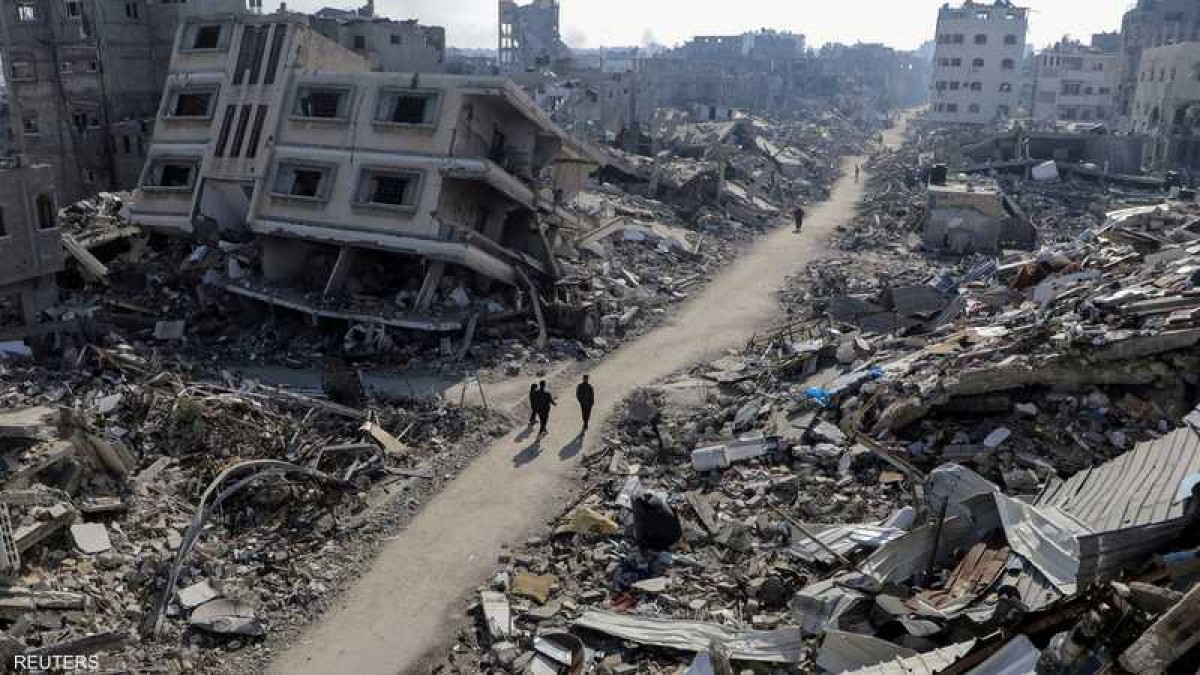Hamas: No prisoner exchange deal until the end of the war in Gaza


Khalil Al-Hayya, a member of the Hamas political bureau, said on Wednesday that there will be no prisoner exchange deal with Israel until after the end of the war in the Gaza Strip.
He added in a television interview: “Without stopping the war, there will be no prisoner exchange, as it is an interconnected equation. We say very clearly: We want this aggression to stop, and it must stop first in order for any prisoner exchange to take place.”
Hayya, who led the movement's negotiating team in talks with Egyptian and Qatari mediators, blamed the lack of progress on Israeli Prime Minister Benjamin Netanyahu, who for his part holds Hamas responsible for the faltering talks.
Al-Hayya said, “There are ongoing contacts with some countries and mediators to move this issue forward. We are ready and taking the initiative to continue these efforts,” stressing the necessity of “a real will” in Israel to stop the war.
He added, “Reality proves that the obstructionist is Netanyahu, as those near and far witnessed.”
Netanyahu said during his visit to Gaza on Tuesday that Hamas will not rule the Palestinian Strip after the end of the war and that Israel has destroyed the movement’s military capabilities. Netanyahu added that Israel has not given up trying to find the remaining 101 prisoners who are believed to be still in the Gaza Strip, and offered a reward of five million dollars for the return of each one of them.
Hamas wants to reach an agreement that ends the war and includes the release of Israeli and foreign prisoners detained in Gaza, as well as Palestinians
They are imprisoned by Israel, while Netanyahu pledged that the war would not end until Hamas was eliminated.
100 aid trucks per day
In another context, Al-Hayya said that the Israeli authorities are working in every possible way to limit the entry of humanitarian aid into the besieged Gaza Strip, and only allow about 100 trucks to enter the Strip daily.
Hamas' Telegram channel reported Al-Hayya saying that Israel is placing all kinds of obstacles to the delivery of humanitarian aid to Gaza.
He pointed out that Israel allows the entry of an average of 40 trucks daily into the northern areas of the Gaza Strip, and 60 to 70 cars into the southern part of Gaza through the Kerem Shalom checkpoint. He added: "Some days, trucks loaded with humanitarian aid are not allowed to enter Gaza at all."
In another context, the Hamas movement on Wednesday considered the United States a “direct partner” in the war on the Gaza Strip, after it used its veto power to obstruct the issuance of a Security Council resolution calling for a ceasefire in the Strip.
The movement said in a statement: “Once again, the United States of America proves that it is a direct partner in the aggression against our people... and that it is directly responsible for the war of genocide and ethnic cleansing, just like the occupation,” according to what was stated in the statement.
16 Palestinians were killed in the southern Gaza Strip
The Israeli bombing, on Wednesday, led to the killing of at least 16 Palestinians in air attacks on various areas in the southern Gaza Strip.
The Palestinian Civil Defense Service said in a brief statement that the Israeli army targeted a tent housing displaced people in the outskirts of the city of Khan Yunis in the southern Gaza Strip, killing at least eight Palestinians and wounding a number of others, the majority of whom were children.
In the Nuseirat refugee camp in the central Gaza Strip, the Israeli army killed eight other Palestinians in a bombing that targeted the Khaled bin Al-Walid School, which houses displaced Palestinians.
Palestinian medical sources at Al Awda Hospital said that the majority of “the victims were children, some of whom arrived in torn pieces.”
The sources explained that due to the ongoing Israeli targeting, Al Awda Hospital suffers from its inability to deal with the large number of victims and wounded, due to the lack of medical capabilities in the camp.